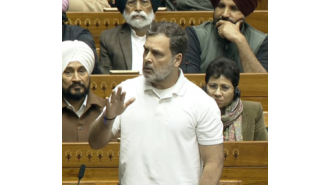A person who has revealed war crimes asks for mercy as they face imprisonment from prosecutors.
Prosecutors seeking 2-year jail term for David McBride's guilty plea in revealing classified information on alleged war crimes.

David McBride, a former military lawyer, is facing the possibility of spending the next two years of his life in jail. This comes after he pleaded guilty to disclosing classified information that revealed potential war crimes. McBride's actions were motivated by a sense of duty and a desire to bring justice to those who had been wronged.
During the hearing at the ACT Supreme Court, both sides presented their arguments. McBride's barrister, Stephen Odgers SC, emphasized that his client acted in the public interest when he leaked the sensitive documents. He believed that soldiers were being unjustly investigated for actions that were not considered war crimes. In fact, he saw it as a public relations tactic for the department to appear proactive. The documents were initially meant to support a complaint that McBride planned to make to the Inspector-General of the Australian Defence Force.
However, as Odgers explained, McBride's emotional wellbeing was already compromised due to PTSD and substance abuse. This, combined with his sense of duty, led him to take a different course of action. He approached a journalist with the documents, hoping to have senior officials investigated. His goal was to expose the truth and hold those responsible accountable for their actions. McBride was aware that he was going against internal defence codes and could face disciplinary action, but he believed that his actions were justified in the interest of the public.
McBride's character was also highlighted in court, with references from former army commanders, family members, and law school classmates. They all spoke highly of his empathy, sense of duty, and passion for justice. However, Prosecutor Trish McDonald argued that McBride's actions were serious and put national security at risk. She stated that he breached his responsibilities as a lawyer and a senior defence official.
McDonald also pointed out that neither the inspector-general nor the Australian Federal Police found evidence to support McBride's claims of criminality within the highest ranks of the department. She urged the judge to impose a sentence of at least two years in jail, stating that a suspended sentence or a community corrections order would not be appropriate given the severity of the crimes.
McDonald also refuted the defense's argument that McBride's mental health affected his judgment. She stated that he maintained his actions were justified even after becoming sober. She also questioned why he felt the need to keep the documents at home when he was working on his application to the inspector-general at his workplace with the knowledge of his superiors. She also noted that during various disclosures, McBride did not specifically mention any criminal offenses.
As the judge considers his decision, McDonald reminded him to take into account the time of the offense, which occurred between 2014 and 2015. During this time, 235 documents were taken, with 207 classified as secret. Despite the potential consequences, McBride maintained that he has no regrets about shedding light on the wrongdoing. When asked how he would like to be seen, he replied, "As someone who stood up for Australian values." His leaked documents led to reports about alleged war crimes committed by Australian special forces in Afghanistan. An inquiry later found credible information about 23 incidents involving the killing of 39 Afghans between 2005 and 2016.
Justice Mossop is set to deliver his decision on May 14th, and until then, McBride's fate remains uncertain.
1 Views










